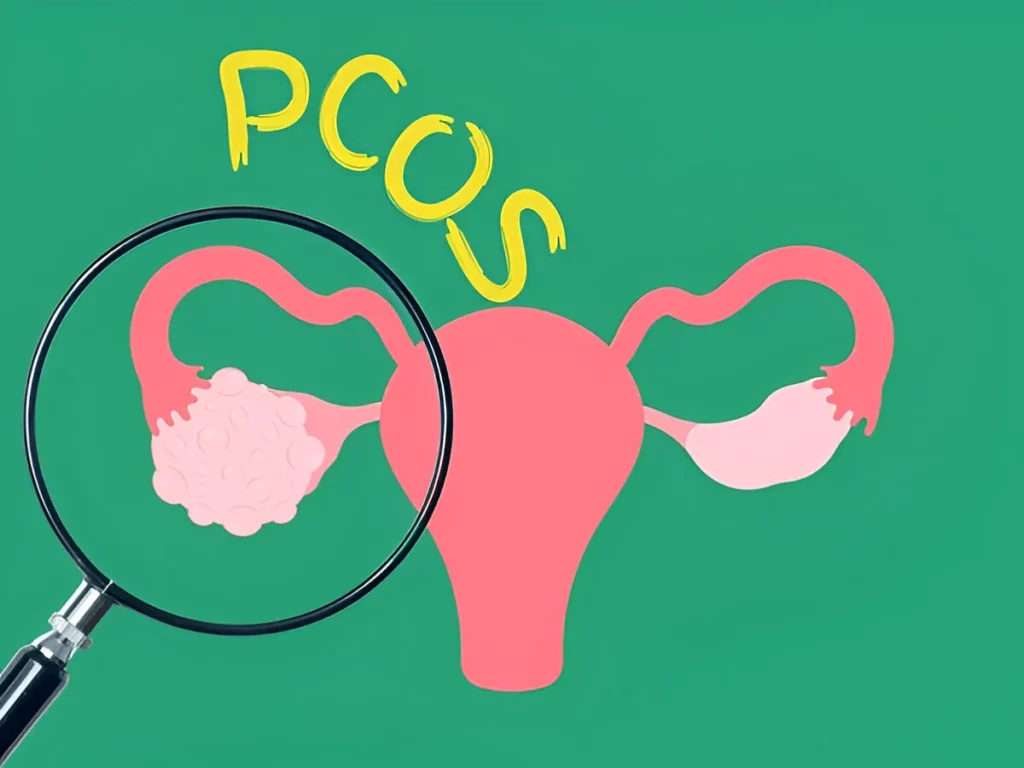-
Ganesh Talkies, Kolkata
Ganesh Talkies, Kolkata

Best Diet for PCOS Patients is no longer a mystery—discover science-backed foods, practical tips, and trusted advice from a reputed gynecologist.

Polycystic Ovary Syndrome (PCOS) affects millions of women worldwide. It’s not just a reproductive health issue—it influences metabolism, weight, skin, hair, and emotional well-being. Women often struggle with irregular periods, insulin resistance, unwanted facial hair, and difficulty conceiving.
What’s often overlooked is how powerful the right nutrition can be in managing PCOS. While there’s no one-size-fits-all solution, emerging science points to strategic dietary choices as the most effective long-term approach.
Food is more than fuel. In PCOS, it becomes medicine.
Your daily food choices can either stabilize insulin levels and hormone balance—or worsen symptoms. Women with PCOS are more prone to insulin resistance, meaning the body doesn’t process sugar efficiently. This creates a ripple effect, impacting ovulation and hormone production.
A well-structured diet can:
And that’s why understanding the Best Diet for PCOS Patients is essential—not just for managing symptoms, but for long-term wellness.
Let’s explore evidence-based dietary guidelines that work.
Foods with a low GI don’t spike your blood sugar and help maintain stable insulin levels.
Include:
PCOS is often accompanied by low-grade inflammation. Certain foods can help calm this process.
Helpful options:
Protein helps with satiety and supports lean muscle mass, which improves insulin sensitivity.
Great sources:
It’s tough but necessary. Refined carbohydrates worsen insulin resistance and promote fat storage.
Avoid or limit:
Contrary to outdated myths, fats (the good kind) are essential for hormone production and satiety.
Include regularly:
Here’s a simplified day to help visualize the Best Diet for PCOS Patients:
Breakfast:
Mid-Morning Snack:
Lunch:
Evening Snack:
Dinner:
Before Bed:
This is a general guide. Always customize your meals to suit allergies, preferences, and specific health needs.
Even the best diet won’t work in isolation.

One of the greatest challenges women with PCOS face is fertility. Elevated insulin and androgens interfere with ovulation, making it difficult to conceive naturally. However, nutrition can be a game-changer.
Studies show that when PCOS patients follow an insulin-sensitive diet (like the Mediterranean or DASH diet), ovulation improves, periods become more regular, and natural conception becomes more likely. In fact, fertility experts often recommend nutrition as the first step before medical intervention.
Food also affects mood. Women with PCOS often report anxiety, mood swings, and emotional eating—partly because of hormone imbalances and partly due to the emotional stress of the condition.
Practical tips:
And remember, self-compassion is part of healing. Your journey is unique and deserves patience.
Even the most well-planned diet should be personalized. That’s where experienced gynecologists and dietitians step in. Especially for those in urban areas, connecting with a professional who understands both nutrition and hormonal health can make all the difference.
With so much information available, it’s essential to seek guidance from a trusted gynecologist—one who combines clinical expertise with a deep understanding of hormonal health and patient care.

Q1. Can diet alone reverse PCOS?
Not exactly. PCOS is a chronic condition, but symptoms can be managed—often dramatically—through lifestyle changes, including diet.
Q2. Is intermittent fasting safe for women with PCOS?
It depends. Some women benefit from short fasting windows (like 14:10), but it must be done under medical supervision.
Q3. Are dairy and gluten bad for PCOS?
There’s no one-size-fits-all answer. Some women feel better avoiding dairy or gluten, especially if they notice digestive issues. Others tolerate it well.
Q4. How long before dietary changes show results?
Improvements in energy, skin, mood, and cycle regularity can start within 4–8 weeks with consistency.
Q5. Should I take supplements for PCOS?
Sometimes. Inositol, vitamin D, and omega-3s are commonly recommended—but only after evaluation by a qualified expert.
PCOS is complex—but so are you. Your body is not broken; it simply needs the right tools and support. Choosing the Best Diet for PCOS Patients isn’t about restriction—it’s about nourishment, stability, and empowerment.
By tuning into your body’s needs, eating whole foods, and avoiding common triggers, you’re not just managing symptoms—you’re building a healthier, more sustainable lifestyle. And if you’re ever unsure, know that help is always available from professionals who walk beside you on this journey.